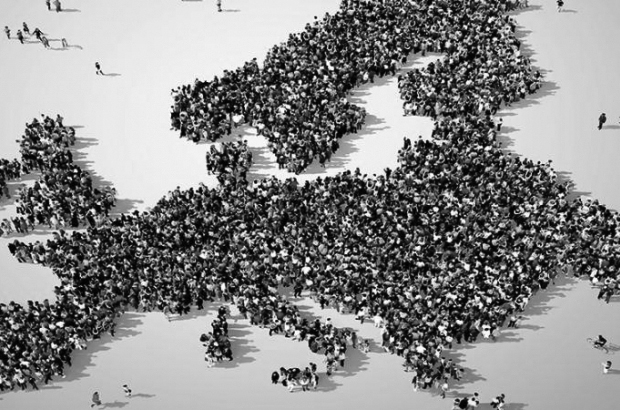AGM 2019: Europe, knowledge politics and bureaucracy: anthropological perspectives

The EASA AGM and Seminar will take place on 28th and 29th October in Brussels at the Université Libre de Bruxelles, Laboratoire d'Anthropologie des Mondes Contemporains.
Campus du Solbosch, Institut de Sociologie (batiment S), Janne Room (15ème niveau), 44 avenue Jeanne, 1050 Bruxelles
The AGM will take place at 14:00 on 28th - read the agenda .
The seminar focuses on the Anthropology of Bureaucracy/Policy and is an opportunity to reflect and discuss from an anthropological point of view the dynamics and processes that take place within European institutions in Brussels. Angela Liberatore, head of ERC Social Sciences will participate in the the seminar and share her experiences with us.
The main aim is to initiate a conversation to critically assess how European Union (EU) institutions have intervened in, and helped to shape, both research practices and research results in Europe within the last thirty years. Drawing on anthropological approaches, the seminar will take advantage of being held in Brussels in order to bring policy makers of the European Commission and funding agencies implied in the EU policy on research to the table. The intention is to provide a two-way street: presentations by anthropologists on their understanding of the EU’s research agenda and its implementation, and commentaries from policy makers about what they were hoping to achieve. This will be an opportunity for anthropologists to engage with the institutions that have provided both much of the funding and the policies that have shaped academic research in Europe, for good or for bad.
Timetable of seminar and AGM
Monday 28/10
09:15 Introduction: Sarah Green (EASA President), Sasha Newell (LAMC Director)
09:30-11:00 Roundtable: Anthropologists of EU PolicyAlexandra Oanca is a specialist on concepts and policies involving European cultural heritage, and particularly the European Capital of Culture program. See below for an abstract of her presentation for the round table.
Cris Shore has spent many years on the anthropology of policy and bureaucracy, and has written extensively about the European Union and EU policy.
Noel Salazar, a former President of EASA, is an expert in concepts of (im)mobility and questions of cosmopolitanism and relations between the global-local nexus.
Manuela Boatcă, the discussant for this roundtable, is a specialist on postcolonialism and the traces that Europe has left around the globe in terms of structures, ideologies, laws, and particularly in terms of inequalities.
Cris Shore (Goldsmiths, University of London)
Alexandra Oanca (University of Leuven/University of Hull)
Chair: Sarah Green (University of Helsinki) Discussant: Manuela Boatcă (Albert-Ludwigs-Universität Freiburg)
11:00-11:30 Coffee/tea
11:30-13:00 Panel 1: The EUropean Law, Bureaucracy and Governance of Anthropology: authorship & ethics in big projects
Cassandra Yuill (City, University of London): ‘Is Anthropology Legal?’: Anthropology, ethics and the EU General Data Protection Regulation13:00-14:00 Lunch
14:00-16:30 AGM: read the agenda
16:30-18:00 Drinks reception
Tuesday 29/10
09:30-11:00 EASA Executive Committee meeting with EASSH and ISE on EU funding and policyChair: David Mills; Discussant: Mariya Ivancheva
11:00-11:30 Coffee/tea
11:30-13:00 Panel 2: The Borders and Bordering of European Anthropological Research
Prem Rajaram (Central European University): Bordering Education, Bordering Europe13:00-14:00 Lunch
16:00-17:30 Roundtable on management of ERC grants
Angela Liberatore (Head of Unit of Social Sciences and Humanities, ERC Executive Agency)
Cristiana Bastos (Lisbon University, ERC Advanced Grant PI)
Sarah Green (University of Helsinki, ERC Advanced Grant PI)
Bruce Kapferer (University of Bergen, ERC Advanced Grant PI)
Marina Gold (University of Bergen, ERC Advanced Grant Postdoc)
Chair: David Mills (University of Oxford)






